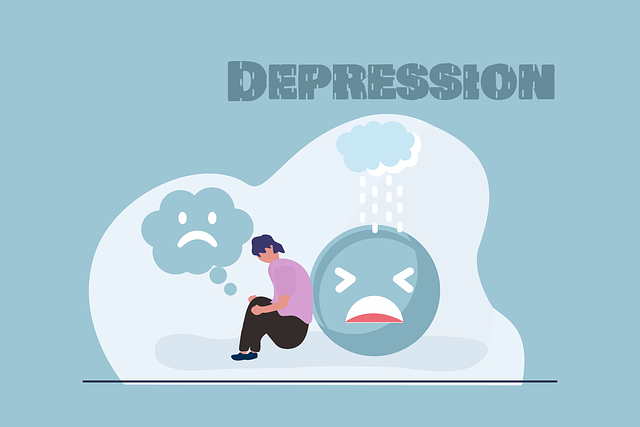Burnout among healthcare providers caring for elders with cancer is a growing concern driven by complex care needs, limited resources, and systemic pressures. To combat this, organizations should implement comprehensive stress management programs including exercise, mindfulness, support groups, and mental health education. Evidence-based interventions like cognitive behavioral therapy (CBT) and mindfulness practices can enhance emotional intelligence and resilience, reducing burnout risks. Prioritizing self-care through coping skills development and promoting cultural sensitivity in mental healthcare is vital for maintaining healthier work-life balances and improving patient outcomes in therapy for elders with cancer issues.
Healthcare provider burnout is a growing concern, especially among caregivers catering to elders with cancer issues. This article delves into comprehensive strategies to prevent professional exhaustion in this critical sector. We explore the root causes of burnout, focusing on the unique challenges faced by healthcare providers caring for the elderly. By examining supportive work environments and evidence-based interventions, we provide actionable steps to combat fatigue. Additionally, fostering self-care and resilience among caregivers is highlighted as a crucial aspect for long-term well-being in this demanding profession.
- Understanding Burnout Among Healthcare Providers Caring for Elders with Cancer
- Creating Supportive Work Environments to Combat Fatigue
- Evidence-Based Interventions and Therapies for Stress Management
- Fostering a Culture of Self-Care and Resiliency Among Caregivers
Understanding Burnout Among Healthcare Providers Caring for Elders with Cancer

Burnout among healthcare providers caring for elders with cancer is a growing concern, as these professionals often face unique challenges and demanding workloads. The emotional strain of managing complex care needs, dealing with limited resources, and navigating the complexities of elder care can take a significant toll on their well-being. Understanding burnout involves recognizing its signs—exhaustion, cynicism, and detachment—and acknowledging that it’s not just an individual issue but a systemic problem within healthcare settings.
Effective prevention strategies are crucial to supporting these caregivers. Implementing comprehensive stress management programs, including regular exercise, mindfulness techniques, and support groups, can help mitigate the impact of work-related pressures. Additionally, promoting depression prevention through early detection and intervention services tailored to the needs of elders with cancer is vital. Encouraging the development of coping skills, such as effective communication strategies and time management techniques, enables healthcare providers to better manage their workload and maintain a healthier work-life balance.
Creating Supportive Work Environments to Combat Fatigue

Creating supportive work environments is a crucial aspect of burnout prevention for healthcare providers, especially those caring for elders with cancer issues. This involves implementing strategies that foster a sense of belonging and community within the workplace. Organizations can achieve this by promoting open communication channels where staff feel comfortable sharing their concerns and experiences without fear of judgment. Encouraging collaboration through team-building activities and regular interprofessional meetings can also strengthen bonds and reduce feelings of isolation.
Moreover, incorporating mental health education programs designed to enhance resilience and coping mechanisms is vital. These programs can include workshops on stress management, mindfulness techniques, and inner strength development. Additionally, providing resources for healthcare provider cultural competency training ensures that staff are equipped to deliver patient-centered care, thereby reducing the emotional burden often associated with caring for diverse populations.
Evidence-Based Interventions and Therapies for Stress Management

Evidence-based interventions and therapies play a pivotal role in burnout prevention strategies for healthcare providers, especially those caring for elders with cancer issues. One such effective therapy is cognitive behavioral therapy (CBT), which helps individuals identify and change negative thinking patterns and behaviors contributing to stress. CBT has been shown to improve emotional intelligence—the ability to understand and manage one’s own emotions as well as others’—which is crucial in maintaining mental wellness, particularly in demanding healthcare settings.
Additionally, mindfulness-based interventions have gained popularity due to their success in reducing stress and improving overall mental health. These practices encourage practitioners to focus on the present moment, fostering a sense of calm and clarity. Given the challenges faced by healthcare providers, integrating emotional intelligence into their professional lives through therapy sessions or mental wellness podcast series production can significantly contribute to burnout prevention.
Fostering a Culture of Self-Care and Resiliency Among Caregivers

In the demanding landscape of healthcare, especially when focusing on therapy for elders with cancer issues, fostering a culture that prioritizes self-care and resilience is paramount. Caregivers, often overwhelmed by emotional and physical strain, need supportive environments encouraging open dialogue about their well-being. This involves implementing coping skills development programs that teach effective stress management techniques, ensuring healthcare staff have the tools to navigate their own challenges alongside those of their patients.
Organizations should also facilitate cultural sensitivity in mental healthcare practice, recognizing the diverse needs and experiences within their care. By promoting a culture where self-care is not only accepted but encouraged, healthcare providers can enhance their ability to offer consistent, compassionate support. Such initiatives not only benefit individual caregivers but also positively impact patient outcomes by fostering stronger, more resilient caregiver-patient relationships.
Healthcare provider burnout is a pressing issue, especially when caring for elders with cancer. By understanding the root causes, creating supportive work environments, and implementing evidence-based interventions like stress management therapies, we can foster a culture of self-care and resilience among caregivers. These strategies not only benefit individual providers but also enhance the quality of care delivered to elderly cancer patients. Incorporating these practices is crucial in addressing burnout, ensuring healthcare professionals remain dedicated and resilient in their important work.














